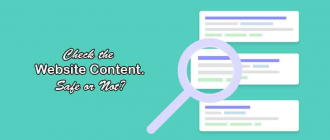This article of Geeabo teaches you about The Pros and Cons of Using a VPN (Virtual Private Network).
So the coin has two sides, so does VPN!
Virtual Private Networks, or VPN, allows connection of two or more devices of distant places for as long as they have the same logical network. To make the definition easy, it simply builds a secluded network that is manageable through the internet, a public network. Industries make use of the Virtual Private Network or VPN to generate protected private networks, permit employees and workers who are in far places to have a contact with the data and files of the company through private servers, and more features. Meanwhile, others use the VPN to keep on being unidentified on the internet while browsing and keep their data safe on links with little or no security at all. To know more about VPN, here are the Pros and Cons of Using Virtual Private Network.
The Pros of Using VPN (Virtual Private Network).
1. First is security enhancement.
The basic feature on how VPN works is that it encrypts the whole network traffic, therefore it allows transmission across the linkages in a protected manner. Simply put, enhanced security for your browsing and transferring data. Evidently, you must absolutely make use of quality VPN service during internet usage and connect through indiscreet links, like the public Wi-Fi and hotspots. Without VPN where your network is not coded, hackers or simply eavesdropper can have an access to your network, making your important and confidential file vulnerable to stealing. In addition, this is the reason why companies utilize high-quality Virtual Private Networks to secure long-distance connections with their employees in remote areas.
2. Second is it allows you to get into geo-restricted contents and websites.
If asked why one make use of a Virtual Private Network, this reason will likely give the most votes. A tunnel allows you to be routed into all system aberration. Furthermore, VPN can make your network to appear like you are using the internet and browsing from another location. Thus, making it easy to go beyond geo-restrictions with websites and contents because some countries do not permit sites unlike in other countries. Using VPNs can let you access everything on Netflix anywhere in the world or watch shows and movies instantly on Hulu.
3.The third is you can have an incognito downloading.
Since Torrent downloads have been the twin sister of piracy, still this can be utilized in several legal matters such as what Canonical deals in the official Ubuntu copies as torrent files. Meanwhile, doing this can put you on your ISP’s watch list, and this is when Virtual Private Network can become your friend and help you get through with this situation. VPN permits you to hide your Internet Protocol address and makes you look like you are using the torrent site in places not your specifically. But despite this features provided by VPNs, one should not engage in illegal downloading because some VPNs could actually log you into your real Internet Protocol address and soon the cops are at your door!
4. Lastly, it allows efficient sharing among distant users.
Like in the earlier definition of the Virtual Private Network, it allows you to use the internet, access links, and connect like you are working on local networks. This property is a great help for enterprises because remote users can link with others far-fetched users in the private network. With that, they can have an entree with the files and data, as well as share information be it with near or far people. It also provides a huge advantage for large and multinational corporations in managing their branches from a different town, provinces, and countries across the globe.
The Cons of Using VPN (Virtual Private Network).
1. The first issue is speed.
A great number of Virtual Private Networks are unacceptably slow because even though VPNs codes your network to assure security, tougher encryption is equivalent to more means and time. However, this is not always the situation because there are VPNs which have good linkage rate but do not put security aside but these are not free.
2. Second is increased linkage complexity.
Network complexity is equal to a lot of protocols, hardware devices to build linkages, and topologies. These factors definitely secure a tough network but a complicated one. Therefore, users and clients must be well-informed about the possible issues that may arise with regard to their connection and network.
3. Lastly is a security issue.
Though this feature is a strength, it can also be a weakness because the admins of the enterprises can have a little to no control over the employees’ devices.
So, VPN is like a double-bladed sword, therefore, like any other things, using it must be regulated.
So, this is The Pros and Cons of Using a VPN (Virtual Private Network).
Hope you guys like this article and you have learned something new, Something techy. Please Do Like, Comment and Share our articles if you really appreciate my work.
If you have any question regarding this article then you can ask me in the Comment box below.
Follow Us on Twitter
Thanks For Visit Geeabo.






